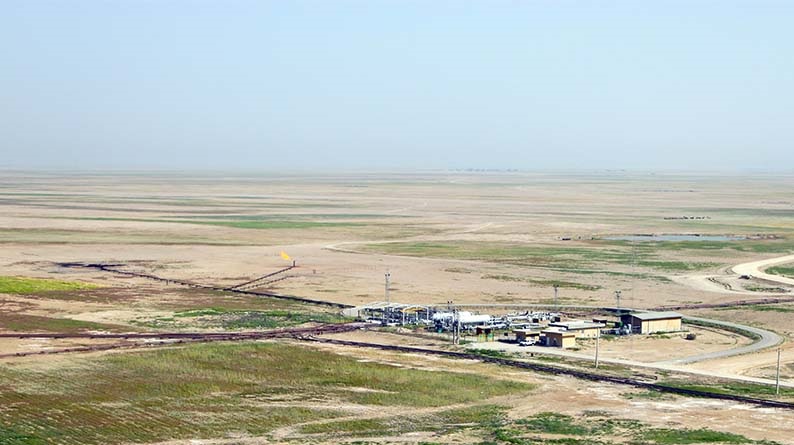According to Iran Petroleum Ministry data, there are more than 102 oil fields in Iran, 28 of which are shared with neighboring countries. Joint onshore fields are shared with Iraq, while the offshore ones are shared with the Persian Gulf and Gulf of Oman nations.
Rival countries will not wait for Iran to finish development of its sector to start recovery from their own share. Every day, Iran is seeing a decline in its share from the joint oil fields without even extracting a single barrel.
That is why the administration of President Hassan Rouhani has reconsidered plans for developing joint fields whose lifecycle is shorter. The Rouhani administration has taken measures to raise the share of joint fields in national output from the current 7%. Meantime, the Iranian government’s economic plans have given rise to more obligations in the oil sector, like bringing the country’s oil production capacity to over 5.7 mb/d within four years.
Two-Phase Development
Changuleh, an untapped field, is shared with neighboring Iraq. It used to be known as an independent field, but new 3D seismic testing and interpretation of seismic data proved its joint status. Exploration Directorate of NIOC has also confirmed that Changuleh is jointly owned by Iran and Iraq.
The field is estimated to need $2.2 billion in investment. Activities like 3D seismic testing, location of wells and infrastructure projects like demining and building access routes have been done for the development of the field.
At least 19 wells need to be drilled for recovery from this field whose development is envisaged in two phases.
In Phase 1, which is expected to last 40 months, four wells will be drilled while two existing exploration wells will be subject to workover, resulting in the production of 15,000 b/d of oil. Meantime, a 100-km oil pipeline as well as oil and gas separation facilities is to be built.
In Phase 2, which is expected to last 60 months, 13 new wells as well as infrastructure facilities are envisaged. That would bring production from Changuleh to 40,000 or 50,000 b/d.
In order to carry oil from Changuleh in the early production stage, a 130-km pipeline, 8 inch in diameter, will be used. According to the Petroleum Engineering and Development Company (PEDEC), by early development of Changuleh and assessing the hydrocarbon potential of this field, it would be possible to recover 65,000 b/d of crude oil.
Oil Reserves at 3.4bn Barrels
Changuleh is known as Badra in Iraq. It is among hydrocarbon fields in the Anaran Block. It is located between the cities of Mehran and Dehloran in Ilam Province. Bangestan Formation in Changuleh is the second most important field in Ilam.
The Anaran Block was discovered in 2005 in cooperation with Norway’s Statoil Hydro and Russia’s Lukoil. It was estimated to hold between 400 and 650 million barrels of recoverable oil.
Changuleh is estimated to hold 3.4 billion barrels of oil in place with an API gravity of 22.
Two new wells are to be spudded while two other wells need to be completed. The surface facilities, a separator, transmission pumps, diesel-powered generator, evaporation tool, flare, line pipe and wellhead equipment are on the agenda.
A number of foreign firms have shown willingness to develop this field, and negotiations have been held with NIOC to that effect. Despite US sanctions targeting Iran’s petroleum industry, NIOC is in talks with foreign parties for investment in this field.
In 2017, Iran’s Oil Industries Engineering and Construction Co. (OIEC) and Russia’s Gazprom Neft signed a non-disclosure agreement for developing Azar and Changuleh. The agreement was endorsed by NIOC. OIEC and Gazprom Neft agreed to hold meetings regularly to exchange views on technical, financial and legal aspects of cooperation.
Courtesy of Iran Petroleum


Your Comment